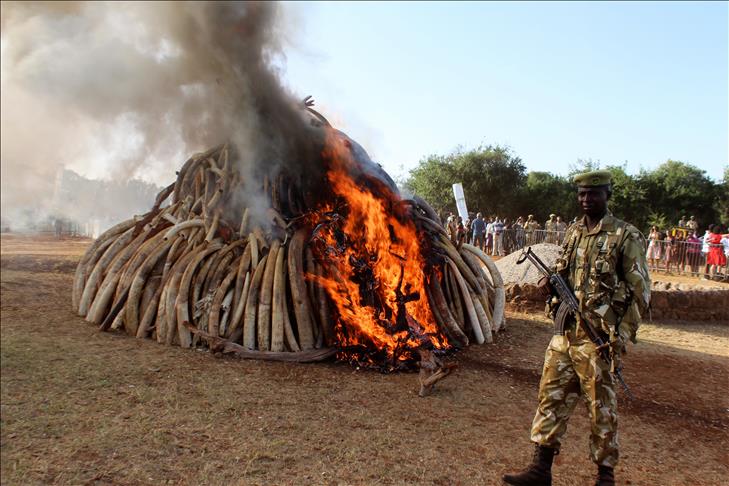
By Magdalene Mukami
NAIROBI, Kenya
In recent years, Kenya has struggled to protect its wildlife from unscrupulous poachers, forcing the East African nation to come up with novel ways of combatting the trend.
To this end, the Kenya Wildlife Service has announced plans to establish a $7.9-million radio surveillance network aimed at thwarting illegal poaching.
According to a UN report released in 2014, between 20,000 and 50,000 elephants are poached each year in Africa, fueling an illegal ivory trade estimated to be worth some $213 billion annually.
Speaking to Anadolu Agency, Wildlife Service spokesman Paul Udoto said the new radio surveillance network would be rolled out in three of Kenya’s main conservation areas.
“It’s being implemented in three out of eight conservation areas. It [the network] has data capacity in facilitating communications between the head office and rangers in the field in terms of monitoring and tracking poachers,” Udoto said.
The new system, he noted, would streamline communications between the Wildlife Service and other relevant parties tasked with fighting poachers.
“The new system will reduce cases of poaching in Kenya,” Udoto asserted. “We also have programs in place by which our rangers are receiving special training.”
The new anti-poaching radio surveillance network, he explained, “is part of an array of new measures aimed at tackling the scourge of poaching”.
He went on to stress that the Wildlife Service was “very hopeful that – coupled with the punitive law – we will be able to stop poaching in the country”.
Udoto added that, with the new system in place, Kenya was also in a much better position to fight illegal wildlife trafficking.
In a symbolic gesture to mark World Wildlife Day on March 3, President Uhuru Kenyatta set fire to 15 tons of ivory that had been seized from poachers by the Kenyan authorities since 2010.
According to the Kenya Wildlife Service, the number of elephants killed each year in the country has increased steadily since 2011, when 289 elephants were illegally poached.
A similar increase has also been seen in terms of the number of the country’s rhinos poached each year, according to the Wildlife Service.
Last year, the UN released a report suggesting that the poaching and trafficking of wildlife may be used to fund criminal activities in Africa, noting that Kenya’s Port of Mombasa represented a major transit route for illegal wildlife products.
Anadolu Agency website contains only a portion of the news stories offered to subscribers in the AA News Broadcasting System (HAS), and in summarized form. Please contact us for subscription options.





